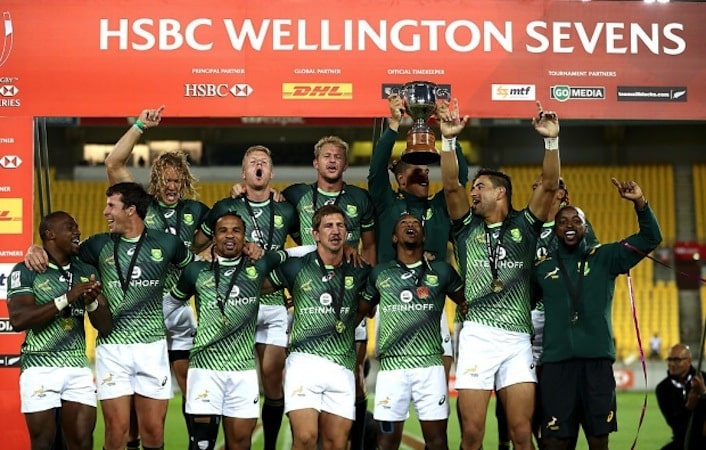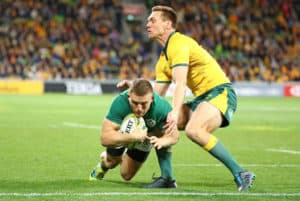The Blitzboks’ continued success has provided illuminating insight into the benefits of a united and happy team environment, writes CRAIG LEWIS.
The recent success of the Springbok Sevens side could not have come at a better time. Just a week after the Springboks slipped to an eighth humiliating defeat of 2016 against Wales, the Blitzboks finally shed some light on the bleak South African rugby landscape with victory in the opening tournament of the new World Rugby Sevens Series.
They followed that up with a runners-up finish at the festive Cape Town Sevens, while this past weekend, they defeated Olympic gold medallists Fiji twice along the way to claiming the Wellington Sevens title for the first time since 2002.
At the trophy presentation, the team sang and danced as they celebrated a triumph that further extended their lead at the top of the series standings. The bond and camaraderie between the players was once again clear to see. This is a team that plays not only for each other, but for coach Neil Powell, who is universally popular and widely respected.
It all fits in line with a sevens team culture that is surely leading the way in South African sport at the moment. By all accounts, there are no egos in the squad, while everything is done with the greater good of the team in mind, and the results have spoken volumes.
Quite rightly, the experiment of integrating fifteens players to sevens has been shelved, with the Blitzboks now a unified team of specialists who understand their roles perfectly. Indeed, consider for a moment that the Springbok Sevens team conceded just four tries all weekend in Wellington, while they won the event without two of their key playmakers in Kyle Brown and Cecil Afrika.
Of course, the Blitzboks will desperately miss the presence of try-scoring record-breaker Seabelo Senatla when he makes the move to the Stormers after this weekend’s Sydney Sevens, but his plans and the communication between all parties has been open and amicable.
It’s also been revealing to see how many fans have highlighted the fact they simply do not ‘see colour’ when watching the Blitzboks in action. Here is a side that has embraced transformation, given full backing to talented young players of colour, and the results have been clear to see.
In many regards, there are an array of positives in the Blitzboks’ set-up that stand in complete contrast to the Springboks. For whatever shortcomings the Boks had in terms of their game-plan and on-field performances last year, it was also clear that this was not a team in a happy space.
In speaking out on behalf of many players, Duane Vermeulen openly addressed the fact that there were fundamental flaws in the national set-up that were simply untenable.
The word from both inside and outside the camp spoke to the fact that there was a lack of understanding, clarity and cohesion. Through this confusion, divisions were sowed and the Boks sadly lost all semblance of their identity, while Coetzee appeared to lose the dressing room.
The importance of these factors in a professional team environment cannot be underestimated. Ultimately, at a time when there has been so little to shout about in South African rugby, let’s continue to celebrate a Springbok Sevens side that continues to break down boundaries and demonstrate the rewards of a feel-good team environment.
This season, they’ve provided one of the much-needed feel good stories. Long may it continue.
Photo: Phil Walter/Getty Images





